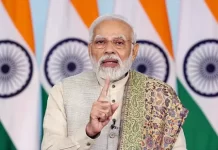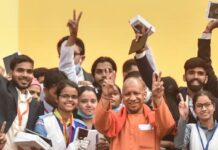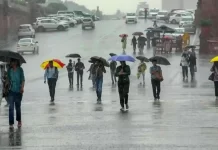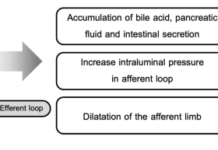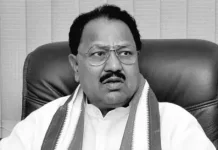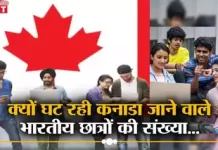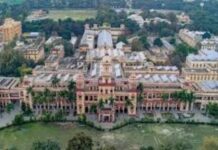Muslims have joined hands with their countrymen shoulder to shoulder for the country’s independence
Dr. Mohammed Najeeb Qasmi Sambhali
In India people of different colors, different languages and different faiths have been living for a long time. Born in Mecca, Hazrat Mohammad Mustafa ﷺ was elevated to world propaganda, meaning he was sent as a prophet for all the incarnations of the world until the resurrection. The message of Islam could not reach India in the life of the last Prophet Hazrat Muhammad ﷺ, but only 82 years after his death, Islam came to India in the seventh century, 92 AH, through the path of Sindh through Hazrat Muhammad ibn Qasim. At that time, Pakistan and Bangladesh were parts of India only. Influenced by the conduct and good manners of Hazrat Muhammad ibn Qasim, about 1300 years ago, a good number of Indians had embraced Islam, and since then Muslims have been living in this country with their other compatriots. The Ganga Jamuna culture of India is exemplified throughout the world as people from different faiths have been involved in the development of the country for hundreds of years.
Muslims have ruled in this country for over six hundred years. From 1526 to 1857, the reign of the Mughal Empire began with king Babar and continued till Bahadur Shah Zafar. Earlier, the Ghilman family ruled from 1206 to 1290, the Khalji family ruled from 1290 to 1321, the Tughlaq family from 1321 to 1412, the Syed family from 1412 to 1451 and the Lodhi family ruled Delhi from 1451 to 1526. For a long time, Muslims ruled the country but Hindu-Muslim riots never took place. In the Ganga-Jammu civilization, no one was discriminated against on the basis of religion and everyone was allowed to follow his own religious teachings.
The British came to India during the reign of Mughal Emperor Jahangir, and during the reign of Shah Jahan, the British started regular trade. The East India Company gradually started bringing arms and troops to India under the guise of trade, but the Mughal Empire in Delhi was strong enough that the British did not have much success. But after the death of Shah Jahan’s son Aurangzeb Alamgir, who ruled the largest area in India, the Mughal Empire began to weaken. So as the fall of the Mughal Empire began in the eighteenth century, the British began to plan to occupy the whole country. Understanding the dangerous plan of the British, the Mujahideen of India began to confront the British. After the martyrdom of Sher Bengal Nawab Siraj-ud-daula and Sher-Mysore Tipu Sultan, the British became oppressive and gradually occupied most parts of the country with Delhi. Meanwhile, Shah Abdul Aziz, the eldest son of the famous Muhaddis Shah Waliullah, saw the atrocities of the British and declared that they should fight against them, after which the scholars came into the field. Mujahideen like Saeed Ahmad Shaheed and Shah Ismail Shaheed became the martyrs. Gradually the voices for the country’s independence began to raise. When the British began to lament Indians their rights and the common people became concerned about the British government, a regular campaign to expel the British from India was started and in 1857 the Indian people joined together. There was a war with the British, in which Muslim scholars issued a fatwa against the British and stood up against them. The country was not liberated in the war with the British in 1857, but the learned scholars of India, especially the clerics, came out in the open for freedom. During the war of 1857, the king of India was Bahadur Shah Zafar, who was the last Indian Mughal ruler before the British, whose four sons were beheaded by the British. Zafar was cheated and arrested and sent to Rangoon forever.
Since the scholars were at the forefront of confronting the British in the war of 1857, the British took revenge on the scholars as well, so more than forty thousand scholars were hung on the gallows. Seeing this brutal treatment of the clerics, a group of scholars laid the foundation of Darul Uloom Deoband on May 30, 1866, to protect their religion and country, whose first student (Shaykh ul Hind Maulana Mahmood Hassan) used the “silk handkerchief” to overthrow the British. Maulana Abul Kalam Azad sounded the trumpet of independence through Al-Hilal and Al-Balagh newspaper. Mahatma Gandhi led the Dandi March and the Satyagraha movement. In 1942, the movement “ Britishers leave India” was started.
The war for the country’s independence which began with the British from 1857 was finally completed on August 15, 1947. Our country was liberated, but sadly the country could not remain one, and got separated from India in the form of Pakistan and then Bangladesh. This country was liberated from the common cause of the Hindu Muslim and the selfless sacrifices of the scholars. Thousands of scholars and millions of people have sacrificed their lives for the freedom of this country. These are the Mujahideen of independence, my grandfather, Hazrat Maulana Muhammad Ismail Sambhali, whose speeches made the British dread and made him suffer for many years in prison.
On August 15, 1947, our country was given independence but because of the country’s own law, the system was governed by the “Government of India Act 1935”. On August 29, 1947, a seven-member committee was formed under the patronage of Dr Bheem Rao Ambedkar to prepare the country’s document. The committee drafted the country’s constitution on November 4, 1947 and presented it. After two years, 11 months and 18 days of debate and numerous changes to it, the Constituent Assembly approved the country’s constitution on November 26, 1949. On January 24, 1950, all members signed and on January 26, 1950, India’s law was enforced throughout the country. On January 26, 1950, in Indian history, it is of special importance that the Constitution was enforced on that day and India became a sovereign country and completely democratic, which our leaders dreamed of. They had nourished this garden with their blood and tasted martyrdom to protect the sovereignty of his country. The background of this day is also that the Indian National Congress in Lahore in 1930 presided over the meeting chaired by Pandit Jawaharlal Nehru as the founder of complete independence rather than Dominion status. It was only on January 26, 1950 that Dr. Rajinder Prasad was elected as the country’s first President.
India is a democratic country in which every person is given his/her rights. Therefore, the Constitution of India is written at the very beginning with the explanation that India should come into being as an independent, social, democratic India which includes social, economic, political, justice, libertarian ideas, freedom of expression for all citizens, freedom of religion and faith, individual identity and respect will be ensured and the integrity of the country will be solidly maintained. All the religions of the country have been taken care of in the country constitution under the patronage of Dr. Ambedkar, all have been given equal rights, all have been given the right to vote, all have been given the right to choose their leader. Yes, everyone is given the option to practice their religion. Everyone has been given basic rights in this practice, but the anti-national elements, unlike the Ganga Jamuna culture seek to achieve their political goals by dividing the country into Hindu-Muslim, though they should know that there are different religions and speakers of different languages in India. For centuries, they have been devoted to the spirit of patriotism. The unity of our country can be sustained only when there is a democratic system in place in the true sense, paving the way for every race and language to flourish. But these days, by creating panic among the minorities, especially the Muslims, and the politics of the majority being driven by the minorities, it is contrary to the Indian custom presided over by Dr. Ambedkar.
It is therefore imperative that we all fight against the dividing powers of the country. The unity of Hindus Muslim Sikhs and Parsis can lead the country towards development. The present government’s decision to change the law of India to give religion-based citizenship to achieve its political goals is against the spirit of the Indian Constitution, created under the patronage of Dr. Ambedkar. There is no point in giving citizenship on the basis of the religion, which is why there are rallies throughout the country against the decision of the present government, even though the present government should protect the Indian constitution and put the slogan “ Sab ka sath sab ka vikaas” into action.
I urge all my brothers that we do not need to be afraid; we have every right to protest to protect the Constitution in accordance with national laws. This country is not owned by any particular religion, but it belongs to all Hindus, Muslims, Sikhs, Christians and Parsis, and has equal rights over all. Muslims have participated with their countrymen shoulder to shoulder for the independence of this country, and are still participating in its development. At the same time, we need to think carefully and take steps to strengthen the social brotherhood and help to improve our daily lives along with the other nations. Also let us not forget our history, even in the worst of situations, Allah creates good conditions, so there is no need to panic, strengthen your relationship with Almighty, do not neglect your duties and obligations. Pay the full rights of Allah and His servants. Maintain unity and harmony. Treat non-Muslim gentlemen with good manners so that the clouds of hatred can be cleared with love and affection. (Views are personal)
(www.siyasat.net is Ahmedabad,Gujarat, India based website, powered by Gujarat siyasat, a Fortnightly)
An Appeal For The Sake Of Upright & Fearless Brand Of Journalism
To sustain and improve our coverage. Gujarat siyasat- a vernacular Fortnightly and English٫ Hindi Website www.siyasat.net
Your little but timely support is needed۔
Bank details، GUJARAT SIYASAT, Current Account 204720110000318, ifsc code BKID0002047 BANK OF INDIA , VASNA BRANCH, AHMEDABAD GUJARAT INDIA
Also on Phone pay, Paytm,Google pay +91 9925531111
We hope you help and see siyasat.net grow. And rejoice that your contribution has made it possible.
सत्य को ज़िंदा रखने की इस मुहिम में आपका सहयोग बेहद ज़रूरी है। आपसे मिली सहयोग राशि हमारे लिए संजीवनी का कार्य करेगी और हमे इस मार्ग पर निरंतर चलने के लिए प्रेरित करेगी। याद रखिये ! सत्य विचलित हो सकता है पराजित नहीं।
Regards,
Abdulhafiz Lakhani
editor@siyasat.net


